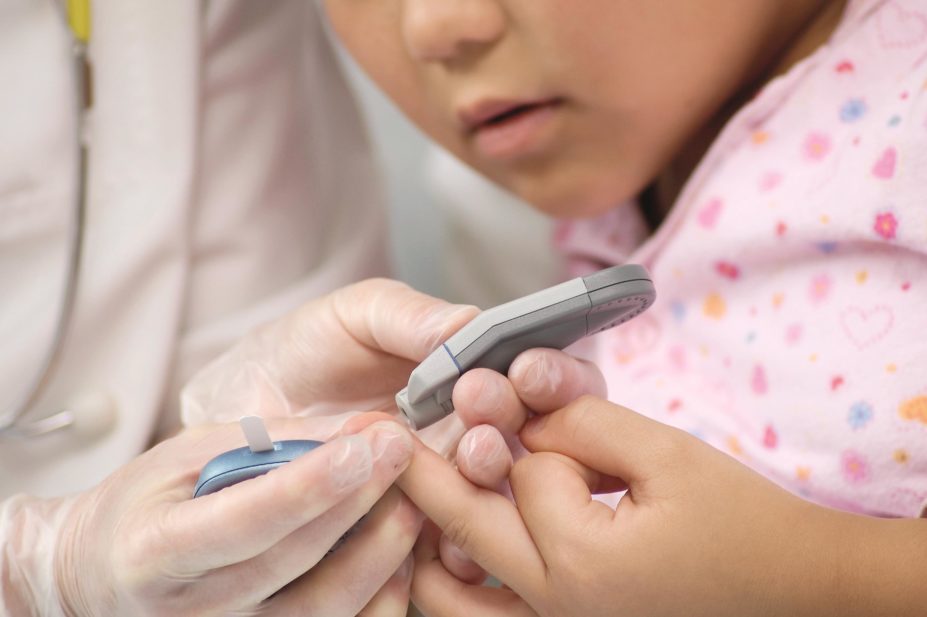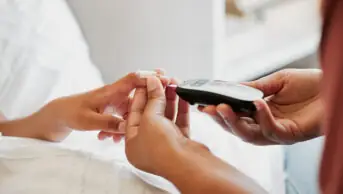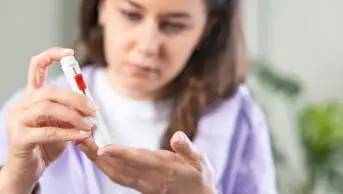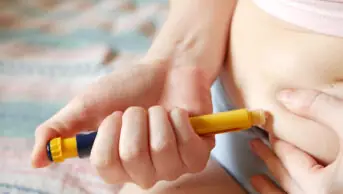
Shutterstock.com
Oral insulin powder was given to children with a high genetic risk of developing type 1 diabetes, as part of a phase I clinical trial, which researchers claim brings them a step closer to a vaccine.
The international Pre-Point study, published in JAMA
[1]
on 21 April 2015, tested daily doses of oral insulin powder in children aged between 18 months and seven years with a genetic propensity for developing type 1 diabetes but who did not have any evidence of autoimmune antibodies.
“This is the first time we have seen a healthful immune response from any therapy used in children who are at a high risk of type 1 diabetes,” says Georgeanna Klingensmith, of the University of Colorado school of medicine, Aurora, who led the US part of the research.
The children in the study were divided into two groups: 15 children received oral insulin powder once a day, in various doses, for 3 to 18 months; a control group of 10 children received placebo.
The insulin dose was increased over time and the researchers found that 67.5mg was enough to induce a normal immune response to the beta cells in the pancreas that produce insulin.
The immune response was measured as increases in serum IgG and saliva IgA binding to insulin, and CD4+ T-cell proliferative responses to insulin. Increases were observed in five of the six children who received the 67.5mg dose of oral insulin (83.3%, 95% confidence interval 53%-99.9%; P=0.02). None of the children developed diabetes, insulin antibodies or hypoglycaemia.
“This is a revolutionary way to prevent type 1 diabetes,” says Anette-Gabriele Ziegler, from the Institute für Diabetesforschung, and one of the study authors. “It is quite logical that if the body’s immune system doesn’t learn how to make the protective responses by itself, we need to give it a little help.”
Victoria Ruszala, a specialist pharmacist at North Bristol NHS Trust with an interest in diabetes, says the findings are positive but that there is a long way to go before a vaccine is developed.
“We struggle to know who is really at risk from type 1 diabetes or if it just happens that your brother or your sister [has the disease],” she says. “Do you want to give your baby oral insulin just because they might get diabetes?”
Richard Elliott, research communications manager at Diabetes UK, says the findings are promising. “This is one of a growing number of studies looking at new ways of preventing type 1 diabetes in those at risk,” he says. “Work is at a relatively early stage, but these findings are promising and we look forward to seeing results from longer and larger studies with great interest.”
References
[1] Bonifacio E, Ziegler A-G, Klingensmith G et al. Effects of high-dose oral insulin on immune responses in children at high risk for type 1 diabetes. The Pre-POINT randomized clinical trial. JAMA 2015;313(15):1541–1549. doi:10.1001/jama.2015.2928.


